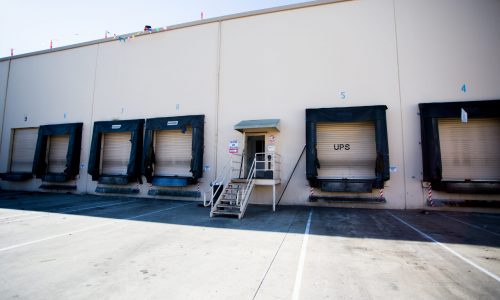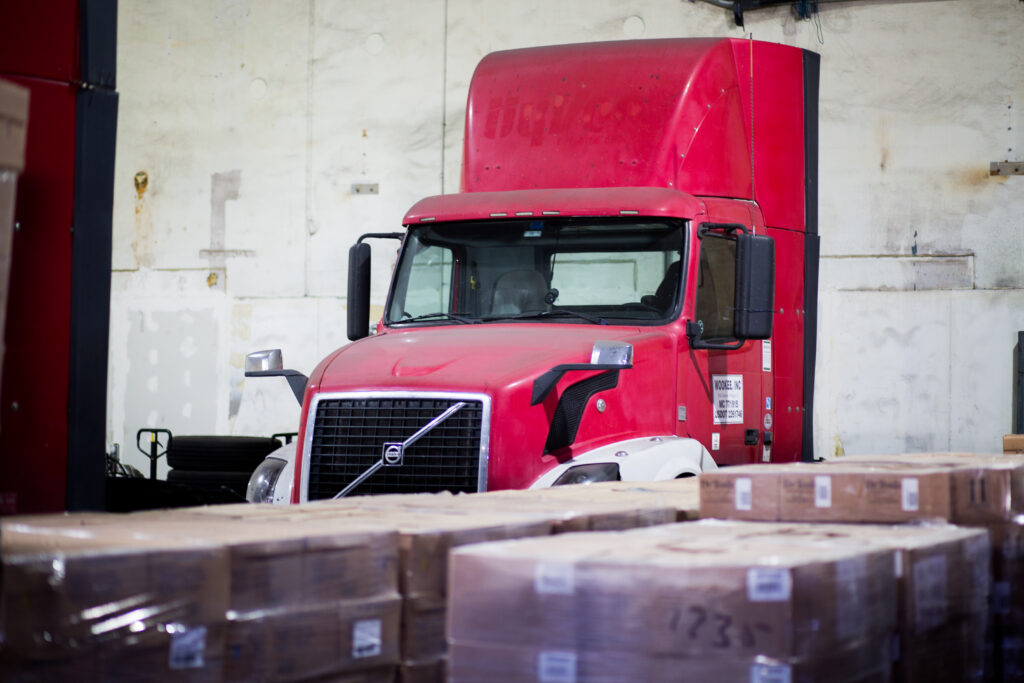Cross Docking: A Beginner's Guide to Efficient Supply Chain Management

VP/COO

Cross docking is a fantastic solution if you’re a business owner looking for an efficient way to manage your supply chain. It is a supply chain management practice that can help reduce costs, minimize time, and optimize efficiency.
It’s an easy and effective way to quickly and efficiently get your products from the point of origin to their final destination. Businesses can streamline their operations and ensure clients receive their orders on time by using this method.
To simplify things, this article will discuss some of the best practices and benefits of cross docking and its process. But first, let’s find out briefly what cross docking is.
What is Cross Docking & Why is it Important for Efficient Supply Chain Management?
Cross docking is a logistics strategy that aims to streamline supply chain operations and reduce the time, cost, and effort involved in moving goods from the origin to the desired location.
It involves unloading incoming shipments from one transportation mode (such as trucks or railcars) and immediately transferring them to outbound modes (such as different trucks or delivery vans) with little or no storage in between.
The benefits of cross docking are many- including lower inventory costs, faster order fulfillment times, reduced handling and labor costs, improved product quality control, and better customer satisfaction.
This can help companies improve their bottom line by reducing operational expenses while increasing efficiency.
Pre-Distribution vs. Post-Distribution Cross Docking
Pre-distribution and post-distribution cross docking are two distinct methods of shipping products from a manufacturer or warehouse to the desired location.
Pre-Distribution Cross Docking
Pre-distribution cross docking is moving items directly from the manufacturer to the store or customer without stopping at a warehouse. This method cuts down on handling time and costs and reduces inventory storage space.
Post-Distribution Cross Docking
On the other hand, post-distribution cross docking involves receiving products at a central warehouse before being sorted and shipped out to their final destination. This method allows for greater flexibility in managing inventory levels and optimizing logistics routes. However, it can also increase handling time and storage costs.
While both pre- and post-distribution offer unique advantages in supply chain management, choosing which method to use will depend on various factors- including product type, volume, destination location, lead times, and transportation methods available.
Cross Docking Process
The process involves several steps- sorting, staging, and transferring products from one truck to another.
The inbound trucks arrive at the cross dock facility, where they are sorted based on their destination and product type.
The products are then staged for transfer onto outbound trucks that will take them directly to their destination. This process requires high accuracy and attention to detail to ensure that the right products arrive on the right truck at the right time.
Benefits of Cross Docking
Reduced Storage Costs
This logistics strategy can significantly help businesses reduce storage costs. By eliminating the need for long-term storage, companies can reduce overheads such as rent and utilities while improving their supply chain efficiency.
Increased Efficiency & Productivity
One of the most significant advantages of is increased efficiency and productivity in the warehouse. By removing unnecessary steps and reducing handling time, cross docking helps companies streamline their operations, minimize delays, and ultimately increase throughput.
Improved Inventory Management
Improved inventory management is another significant benefit. This supply chain practice allows for a streamlined process that eliminates the need for excess inventory storage- leading to fewer space requirements and reduced costs.

Best Practices of Cross Docking
Effective Communication
Effective communication is a crucial component of cross docking- something that the FDR Warehouse in Stockton, CA, has perfected.
Cross docking is a supply chain management technique (we already discussed), and it requires seamless communication between different teams involved in the supply chain. At FDR Warehouse, we understand this well and have implemented measures to ensure communication channels are always open.
Proper Planning & Scheduling
Proper planning and scheduling are one of the best practices of cross docking that cannot be overlooked. By planning, you can ensure that all inbound shipments are arranged to arrive at the facility on time.
This allows for efficient unloading and sorting- improving turnaround times on outgoing orders. Without proper scheduling, deliveries may arrive out of order or too early/late- leading to confusion and unnecessary delays.
Safety Considerations
Safety considerations are an essential aspect of cross docking operations. Since this process involves the movement of large volumes of goods, it is crucial to prioritize safety measures to protect products from damage. OSHA provides a pocket guide on warehouse safety.
FDR Warehouse- Cross Docking Services in Stockton, CA
FDR Warehouse is a leading provider of warehouse services– offering 24/7 customer service, available space, and flexible solutions.
By sorting and classifying goods based on the destination, FDR Warehouse ensures timely shipment, making them the perfect partner for managing your supply chain. They are also conveniently located close to I-5, Highway 99, Highway 4, Union Pacific and BNSF railways, and Port of Oakland and Port of Stockton.
Contact FDR Warehouse to request a quote at (209) 780-5042 or complete our online form.